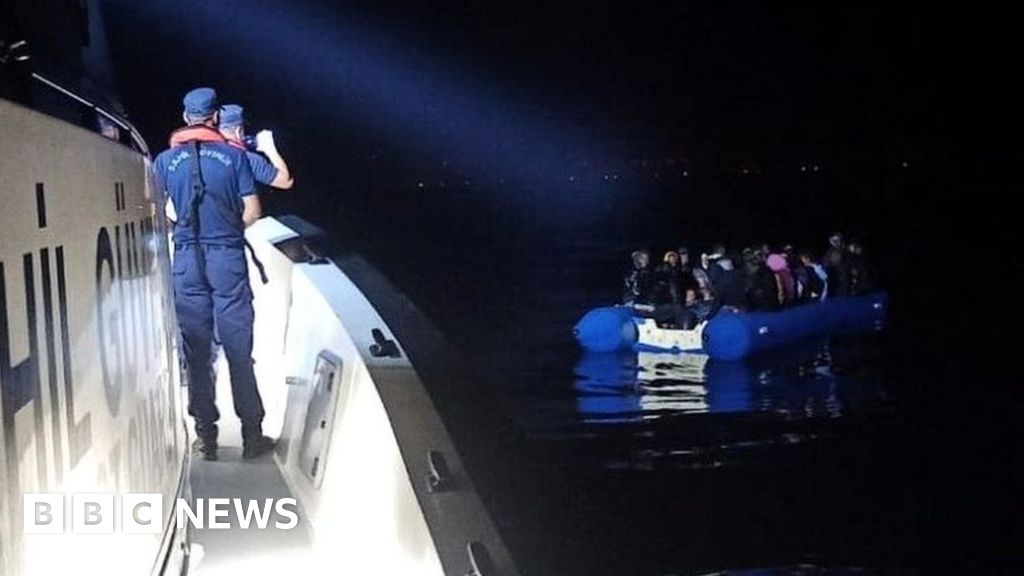The EU’s top court has dismissed a case against European border agency Frontex, brought by a family of Syrian refugees who were sent out of Greece to Turkey in 2016.
Lawyers for the family had argued the EU agency should be held accountable for the refugees being deported without having the chance to apply for asylum.
So-called pushbacks are illegal under international law.
But the European Court of Justice rejected their challenge.
“Since Frontex does not have the power to assess the merits of return decisions or applications for international protection, that EU agency cannot be held liable for any damage,” the Court ruled.
The Syrian family - a husband, wife and four small children - from the Kurdish town of Kobani arrived in Greece in October 2016.
They were among an estimated one million Syrians fleeing the war there who came to Greece during the European migrant crisis.
The family, who has not been named, registered a pre-asylum application registering their wish for international protection on the Greek island of Leros, a small island in the Aegean where many little boats carrying refugees were arriving from Turkey, and were then taken to the island of Kos.
Eleven days after arriving in Greece, their lawyers say the family was put on a plane to Turkey by Frontex and the Greek authorities “without having being able to apply for asylum and without an expulsion decision”.
The family say they were told they were being taken to Athens when they boarded the plane.
During the flight, in the presence of Frontex staff, the parents were separated from their four young children, who were one, two, five and six years old at the time, their lawyers say. They were not permitted to talk to anyone on the journey.
Lawyers say there were 10 asylum seekers on the flight and approximately 25 officials, including Frontex staff.
After reaching Turkey, they were held in the Duzici detention camp, in the south of the country. When they were released, they had no access to housing, water or sanitation in Turkey, so they fled to northern Iraq.
In 2021, the family took their case to the European Court of Justice in Luxembourg, in a lawsuit handled by human rights lawyers and supported by the Dutch Council for Refugees.
After the ruling, the father told RTL Nieuws they had lost hope: “We’ve suffered an injustice and Frontex has to be held responsible for it.”
The family’s lawyers said they aimed to appeal against the ruling.
Lisa-Marie Komp from law firm Prakken d’Oliveira said: “You can’t just deport people to another country. Before someone can be deported, it must be assessed whether he or she needs asylum protection and that has not happened here.”
The Dutch Council for Refugees said the case was about more than one Syrian family.
In a joint statement, the law firm and refugee council said the Court’s ruling was unsatisfactory.
Frontex had great power over the lives of individuals, they said, and yet individuals could not hold the agency accountable in court for how it treated them.
They added that the judgement also raised questions about how Frontex should monitor respect for fundamental rights in its activities, as required under its mandate.
Frontex said it now required EU member states to confirm that people had been given the chance “to seek international protection and their applications had been properly processed in line with EU laws”.
In a recent briefing, the European Parliament said that human rights organisations, the media and civil society organisations regularly reported “cases of pushbacks or collective expulsions at the EU’s land and sea borders” often involving “excessive use of force” by EU member states authorities.
It said Frontex has been accused of failing to safeguard people



It’s illegal but FRONTEX is not responsible, who is? This seems like a dangerous shell game to play with our institutions.